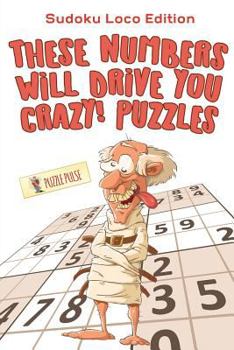These Numbers Will Drive You Crazy! Puzzles: Sudoku Loco Edition
Customer Reviews
Rated 4 starsWorked for class
My professor uses this book to the last word. It's a good book overall however the content is not exactly easy. I would recommend this for someone who has a little knowledge of the subject. A novice could possibly use it with the help of google.
0Report
Rated 4 starsVery good textbook
I grew up with earlier editions of this book and now teach from it. It's an excellent introduction to this material, pitched at just the right level, in my experience, for its intended audience. For students (or people in general) who are extremely sophisticated mathematically, it can sometimes seem a little unrigorous. But for my students, who are mostly philosophers, it manages to convey a sense for what is going on without...
0Report
Rated 5 starsVery lucid explanations
This book is regarded as a 'classic' and rightly so. It assumes a minimal background, some familiarity with the propositional calculus. Even this can be dispensed with, if the reader is sufficiently motivated, as there is a well-written review of the first-order logic that one typically learns in an introductory formal logic course.The book is highly readable. Each chapter begins with a short paragraph outlining the topics...
0Report
Rated 5 starsBigger than it looks!
This book may be inappropriate for those without logic background or those with just a passing interest in computability. It is dense and 'avalanches' quickly to very advanced topics. For the serious student, however, this book is, IMHO, wonderful. It is readable, complete, and the advancement from one topic to the next is appropriate if the student takes her time.I also found the "level of difficulty curve" in the ...
0Report
Rated 5 starsRigorous but readable
Just about the only mathematical logic book readable by ordinary human beings, assuming only a background of first-order predicate logic, taught in almost any introductory logic class. The first eight chapters introduce Turing machines and other formal models of computation, emphazing the evidence for Church's thesis. Chapters 9-13 prove important results concerning first-order logic, including soundness, completeness, compactness,...
0Report













